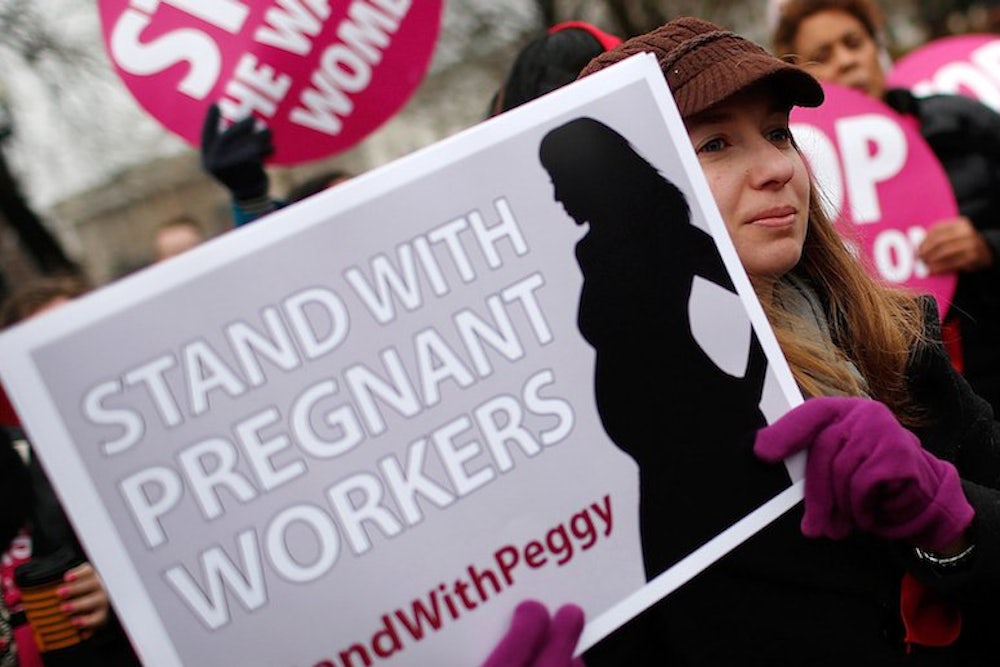The Supreme Court just handed many pregnant workers a win by resolving a question left unclear by the Pregnancy Discrimination Act of 1978. In a 6-3 ruling, the justices found that employers can't use cost as an excuse to deny pregnant workers the same accomodations already provided to workers who are injured on the job.
In 2006, UPS worker Peggy Young was told by her doctor not to lift anything heavier than 20 pounds during the first part of her pregnancy. Instead of assigning Young to light-duty work, which was available to workers injured on the job, UPS put her on unpaid leave. Young sued UPS for back pay and damages; lower courts dismissed her case. On Wednesday, the Supreme Court sent the case back to the Fourth Circuit of Appeals with some specific guidelines that now let the ex-UPS employee sue under the Pregnancy Discrimination Act.
“The Court recognized that a ruling for UPS would have thwarted Congress’s intent in passing the Pregnancy Discrimination Act,” said Samuel Bagenstos, Young’s attorney and a University of Michigan law professor. “The Court made clear that employers may not refuse to accommodate pregnant workers based on considerations of cost or convenience when they accommodate other workers.”
The opinion has its limitations: According to the court decision, a pregnant woman would need to show that an employer refused to provide an accommodation offered to similar workers. "This case does not provide an affirmative right to pregnant workers to receive an accommodation," said Ann O'Leary, the director of the Children and Families Program at the nonprofit Next Generation. That is, an employer who does not provide accommodations for any workers with a temporary disability are under no obligation to do so for pregnant workers.
The case could apply to any working women whose jobs have some physical element, which could be truck drivers, airline workers, or medical care providers— “which is a big set of cases,” Bagenstos said. And it doesn’t just apply to strenuous labor. It could extend to policies like how many bathroom breaks workers get, how long they're on their feet, and if they can keep a water bottle with them during the day.
If employers already offer alternatives to other workers, pregnant workers require equal treatment. UPS, for one, began voluntarily providing pregnant workers light-duty work since the Supreme Court agreed to hear the case.
“It's a big step forward towards enforcing the principle that a woman shouldn't have to choose between her pregnancy and her job,” Bagenstos said.
This article has been updated.
